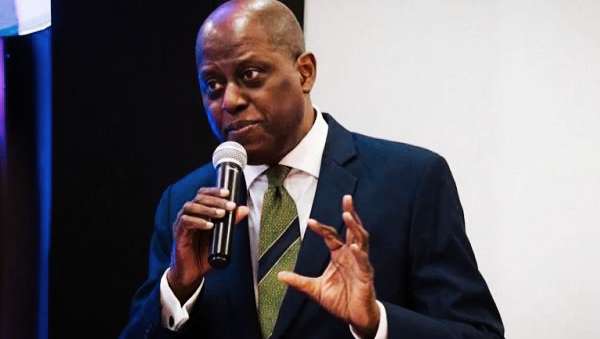Business
FG overrules CBN over cap on Ways and Means

–Experts raise fresh inflation, debt fears
Recent decision by the Senate and House of Representatives to increase the limit within which the Federal Government can borrow from the Central Bank of Nigeria (CBN), may be undermining concerted efforts by the apex bank to bring inflation and naira volatility under control.
The two chambers of the National Assembly had hiked the Ways and Means threshold from five percent to 10 percent, following an amendment of Section 38 of the CBN Act, citing the increasing need for funds to finance budget deficits and other expenses.
The Ways and Means advances are loan facilities used by the CBN to finance the government during periods of temporary budget shortfalls and are subject to limits imposed by law.
According to Section 38 of the CBN Act, 2007, the apex bank may grant temporary advances to the Federal Government with regards to temporary deficiency of budget revenue at such rate of interest as the bank may determine.
The Act reads in part, “The total amount of such advances outstanding shall not at any time exceed five per cent of the previous year’s actual revenue of the Federal Government.”
Ironically, this is coming at a time the governor of CBN, Olayemi Cardoso, has said the country is paying for the consequences of the N27 trillion ways and means loan it had accumulated over time.
Speaking at the BusinessDay CEO Forum recently, Cardoso said there was excess money supply in the system, which has worsened inflation and the country is now bearing the brunt.
“We all saw ways and means soar to N27 trillion and interventions went to N10.5 trillion. It has its consequences. In large respect, that’s what we’re paying for now,” he said.
Earlier in February, Cardoso, said the apex bank had stopped giving Ways and Means to the Federal Government until the previous loans were repaid.
The CBN governor spoke during a meeting of the economic team with the Senate Committees on Finance, Appropriations, Banking, Insurance, and Other Financial Institutions in Abuja.
He had said: “I am pleased to note the Fiscal Authorities efforts in discontinuing Ways and Means advances. This is also in compliance with Section (38) of the CBN Act (2007), the Bank is no longer at liberty to grant further Ways and Means advances to the Federal Government until the outstanding balance as of December 31, 2023, is fully settled.
“The bank must strictly adhere to the law limiting advances under ways and means to five percent of the previous year’s revenue.”
Little wonder Cardoso had made inflation tackling his paramount mission and the essential path to achieving sustainable economic growth in the mid-term to long-term as well as improving the standard of living of ordinary Nigerians.
With that, in the past few months, the CBN has adopted an aggressive monetary policy stance that involves increasing interest rates, which makes borrowing more expensive. This, in theory, reduces spending and investment, thereby cooling down demand in the economy. The apex bank has also been implementing measures to mop up excess liquidity from the system..
Precisely, in its fourth consecutive hike since February, the CBN recently increased the MPR by 50 basis points to 26.75 percent in July, from 26.25 percent. The Monetary Policy Committee (MPC), had also adjusted the asymmetric corridor around the MPR to +500/-100 from +100/- 300 basis points.
Early indications suggest that these measures are starting to yield positive results.
Recent data showing a slight deceleration in the month-on-month inflation rate, suggests to analysts that the monetary policy stance of the CBN under Cardoso, are beginning to impact prices.
The monthly inflation trend underscored conviction from members of the MPC that a combination of tighter monetary policy and appropriate coordinated fiscal measures from the Federal Government would prove effective in arresting the sharp increase in the cost of living that has afflicted Nigerians since the aftermath of the COVID-19 pandemic. But the gains seem to be under threat due to the upward adjustment of the ways and means threshold.
Recipe for excess liquidity
Accordingly, Murtala Sabo Sagagi, a member of the MPC of the CBN, expressed concerns that the proposed increased in the Federal Government’s Ways and Means limit from 5% to 10% could lead to a significant surge in excess liquidity within the Nigerian economy. This is according to a document containing the statements of the MPC members released by the CBN.
Sagagi noted that this development poses a risk of exacerbating inflationary pressures and undermining the efforts of the CBN to stabilize the economy through its tight monetary policy stance.
Sagagi highlighted that the massive injection of funds into the economy, particularly the N22.7 trillion in W&Ms financing had already caused significant economic disruptions,
He said, The massive injection of the naira into the economy through ways and means totaling N22.7 trillion in 2023 created unprecedented economic disruption”
Sagagi also warned that increasing the Way&Ms limit may further fuel government spending appetite, resulting in an overflow of liquidity that could destabilize the financial system and the broader economy.
The MPC member stressed that while the CBN’s current monetary policies have shown positive outcomes in terms of moderating inflation and stabilizing the naira, the introduction of additional liquidity through increased government borrowing could counteract these gains.
Speaking with our correspondent, the Lead partner at Modilim & Co, a financial, business, and management consulting services firm, Dr. Patrick Modilim, condemned any increase in Ways and Means limit, saying it will increase the amount of illegal money in the system, thereby worsening the inflation crisis.
‘’Keeping interest rates high is not an advantage for the banks. The CBN is trying to punish the banks for the profligacy of government’’, Modilim said.
“In other words, the CBN is printing more money for the government. And then CBN will now want to take the same money or about that money away from the economy. But the bulk of the money is the illegal money they’re printing, which is causing the problem.
“The money in the bank is less than 50 percent of the money in circulation. And CBN keeps issuing more money to government to fund their expenses. But they don’t have the money, and that is what is causing this problem of inflation.
Speaking further, Modilim said, “So, the government should stop spending the money they don’t have. And they are spending on frivolities.
“How can you go and be borrowing money and be financing lifestyle, consumption, you’re not producing anything? Those things, like hajj and so on are not bringing money into the economy, rather they’re taking money out of the economy.
”And as long as corruption is high, we’ll continue to have all these problems because most of the money causing the problem – making inflation to be higher than the exchange rate- is corruption money.”
The Minister of Finance and Coordinating Minister of the Economy, Wale Edun, had noted that President Bola Tinubu’s government had not borrowed money from the CBN in line with its coordinated approach to address inflation and exchange rate stability.
“We will pin down Ways and Means to alleviate the pressure of excess money in the system,” Edun had told journalists following a meeting with investors at the last Spring Meetings of the IMF and World Bank in Washington DC, United States.










